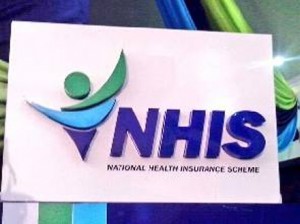Ghana government asked to fix financial challenges of NHIS
 HelpAge Ghana has called on government and other stakeholders to fix the challenges being faced by the National Health Insurance Scheme (NHIS), particularly in the area of finances.
HelpAge Ghana has called on government and other stakeholders to fix the challenges being faced by the National Health Insurance Scheme (NHIS), particularly in the area of finances.
The NHIS should not be allowed to collapse due to “corrupt practices and mismanagement by a few unpatriotic citizens, as well as knee-jerk government policy actions.”
The call was made in a statement signed by Mr Ebenezer Adjetey-Sorsey, Executive Director of HelpAge Ghana and copied to the Ghana News Agency as part of commemorating this year’s World Health Day.
The Day is celebrated every April 7, to mark the founding of the World Health Organisation in 1948.
Mr Adjetey-Sorsey said the increasing financial challenges faced by the scheme in its operations are a major worry to all well-meaning Ghanaians.
He said a nation with majority of her citizens experiencing poor health stands the higher risk of making poverty a vicious cycle for the people.
The Executive Director said the announcement by some public and private service providers to provide only consultation services to card-holders and request them to buy the prescribed drugs with their own resources is a high risk situation to the poor in the society, including the aged.
“We should not forget that ill-health is both a cause and consequence of poverty, and the lack of health insurance, in most instances, promotes deferment in seeking care, non-compliance with the treatment regime, and an overall poor health outcome,” Mr Adjetey-Sorsey said.
He said good health impacted directly on the level and sustainability of economic growth and measures must be put in place to improve access to appropriate and adequate healthcare services for all.
“These will help the people earn a living and fully participate in political, cultural, family and community life influenced to a large extent by their health status.”
The HelpAge recommended some measures for the long-term solution to improve access to appropriate and adequate healthcare services to older people.
They asked for the mainstreaming of “Geriatrics” into the syllabi of health training institutions in the country and the exemption age of 70 should be reviewed downwards to 60 years of the minimum premium payment under the NHIS.
The diseases and drug coverage of the scheme should be made more relevant to the healthcare needs of older people while the national health date should be disaggregated by age to include the 60 years plus.
They also called for the incorporation of the National-Scale-up Plan on Ageing and Health in Ghana into the National Healthcare Strategic Plan.
Source: GNA
